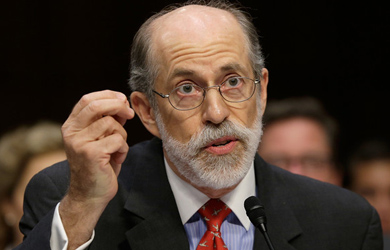UPDATE: Within hours of this post, Cato removed the offending article from its website.
A few days ago Right Wing Watch noted that Cato’s Andrew Coulson was caught falsely casting aspersions on an academic research center in Indiana. The Center for Evaluation and Education Policy recently released a survey that found falling public support for vouchers. Unwilling to believe the results, Coulson launched an untruthful ad hominem attack on CEEP claiming that their study couldn’t be trusted. Now, Clint Bolick’s Alliance for School Choice has stepped up to defend Coulson.
The folks over at PFAW’s blog must have at least pulled a muscle when they stretched to take a swipe at Cato’s Andrew Coulson. Here’s PFAW’s account: Earlier this month, Andrew wrote a column in the Indianapolis Star critical of Indiana University’s Center for Evaluation and Education Policy. CEEP periodically polls Indianans on school choice, and recent poll results have shown declining support for school choice among respondents. Andrew’s principal complaints: CEEP’s financial ties to IU’s Department of Education make the group biased against school choice, and the question design was flawed.
CEEP’s Jonathan Plucker fired back that CEEP is financially independent of IUDOE; that the costs of the poll are likewise paid by CEEP to prevent any hint of bias; and that CEEP works with outside polling experts to make sure the results are accurate and reliable.
Bolick’s group , does not dispute that “Andrew” was lying. Instead, they praise him for issuing a purported retraction, to which they provide a link.
However, PFAW oddly fails to mention that, five days after the column ran in the Indy Star, Coulson subsequently posted this on Cato’s blog.
Sure enough, there is a post on Cato’s blog, dated 9/8, in which Coulson acknowledges his error:
In a recent op-ed for the Indianapolis Star, I wrote that Indiana University’s Center for Evaluation and Education Policy (CEEP) had a vested interest in finding school choice to be unpopular with voters — because it was a part of the University’s Department of Education, and that department could well be rendered obsolete under a large scale school choice program. As it turns out, the Center is largely financially independent of the Department, and so would not likely go down with the ship under a voucher or education tax credit program.
But on that same day, Coulson’s column, including the passage he admits is false, was posted on Cato’s website, where it still appeared without the correction nearly two weeks later.
Coulson himself may have apologized, but Cato and the Alliance for School Choice don’t seem to have a problem perpetuating his false allegations.







